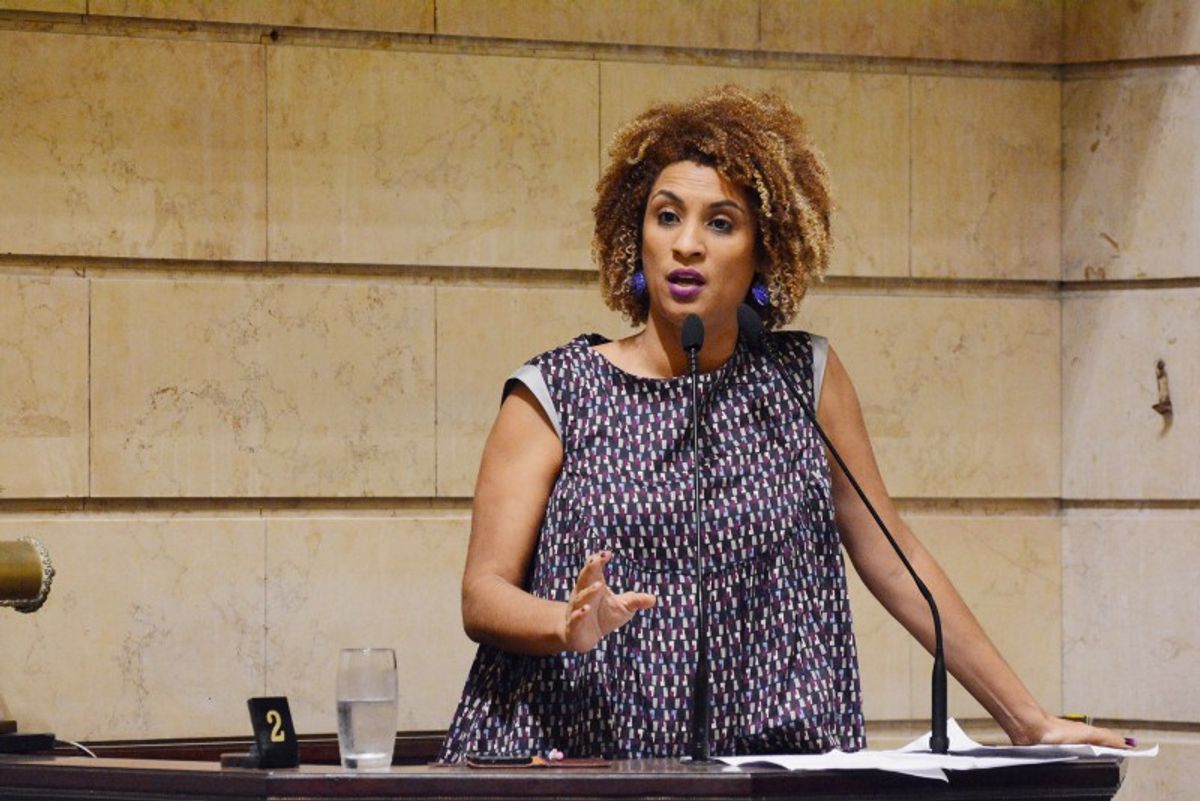Last Wednesday night in Rio de Janeiro, a 38-year old gay black single-mother from one of the city’s largest favelas was shot to death, along with her driver, by two unknown gunmen.
In a city where violence has reached epidemic proportions, those details alone might have gone unnoticed except that this particular woman was Marielle Franco (pictured above), a popular first-term city councilwoman and outspoken advocate for the human rights of women and minorities. Franco had been particularly passionate on the subject of violence by Rio’s famously trigger-happy police — long a subject of international human rights concern.
The incident has quickly taken on national political dimensions, as thousands have hit the streets across Brazil to mourn Franco’s death and demand accountability. The government is under pressure to find out who ordered the killing — suspicion is rampant that it was a message from disgruntled policemen or illegal militias composed of ex-officers.
Moreover, the federal government recently sent the military to take control of security in Rio. Franco’s killing makes it look like the army isn’t doing a great job, and public support for the intervention has fallen since last week, though it’s still at 71 percent.
Lastly, because of who she was and what she stood for, her murder brings together three third-rail issues in Brazil — security, race, and poverty — as the country heads for a pivotal election in which anti-establishment anger is running high, polarization is extreme, and one of the leading candidates, former army-man Jair Bolsonaro, has said that cops aren’t cops unless they kill people. A volatile brew in what is already a deeply uncertain political climate.






